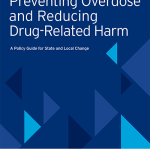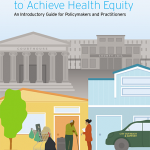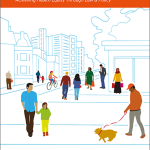Leveraging Data Sharing for Overdose Prevention
Legal, health & equity considerations
Timely exchange and use of data can help stem the tide of drug-related harm in the United States by improving the ability of states, localities, and communities to target resources and interventions to reduce overdoses and overdose fatalities.
Those involved in the collection, use, and sharing of overdose-related data must keep privacy considerations in mind and ensure that data are directed toward improving public health and reducing drug-related harm rather than exposing individuals to additional risk factors such as social stigma, trauma, and involvement in the criminal justice system.
This resource, developed by ChangeLab Solutions with support from the Centers for Disease Control and Prevention, provides an overview of relevant legal, health, and equity considerations in collecting, using, and sharing overdose-related data. It is intended to help individuals and organizations such as state and local health departments, first responders, public safety officials, social service providers, criminal justice facilities, health care systems, health care providers, and health insurers move closer to a public health–focused approach to leveraging data and data sharing for overdose prevention. This resource can also help government and private-sector legal and data security professionals navigate the data-sharing landscape for overdose prevention.
Access to Timely Data Can Inform Overdose Prevention Efforts
The overdose epidemic resulted in more than 67,000 US deaths in 2018, nearly 47,000 of which involved an opioid. Despite federal, state, and local prevention efforts, opioid- and other drug-related harm continues to affect communities across the country. As the scope and direction of the overdose epidemic continues to evolve, ensuring that public health officials have access to complete, accurate, and timely data remains critical to the identification, implementation, and targeting of effective evidence-based interventions.
Agencies Must Address Multiple Concerns to Use Data Sharing Effectively
Efforts to use data to address overdose and other drug-related harm have often failed to keep pace with data use in other fields and are hampered by barriers to data availability and access, as well as by privacy concerns. Moreover, even when data exist, misconceptions about when and how privacy laws apply can impede the sharing of such data for public health purposes.
Addressing gaps in data availability, access to data, and understanding of applicable law is critical, to inform and target overdose prevention and response efforts. By working together, stakeholders can ensure that overdose-related data are collected, shared, and used in ways that preserve patient privacy and protect patients from exposure to additional risk factors while improving public health and helping to reduce overdose and other drug-related harm.



